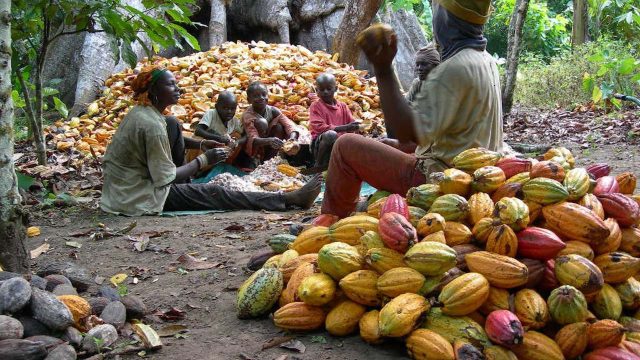Women cocoa farmers in Ondo State have called on the federal and state governments to ensure their inclusion in the African Cocoa Agenda 2063, citing the need for financial support, training, and access to markets.
The demand was made during a stakeholder engagement held in Ile-Oluji, organised by the Development Research and Projects Centre (dRPC) and the Association of Women in Trade and Agriculture (AWITA). The meeting focused on the role of women in the cocoa value chain and the need for their active participation in shaping policy and investment decisions in the sector.
Leader of the AWITA Cocoa Cluster in Ile-Oluji, Mrs. Akinbusola Morohunmubo, noted that women are heavily involved in all stages of cocoa production—from planting to post-harvest processing—but are often excluded from formal support systems and training programmes.
“We are central to cocoa farming in the Southwest, but we face many barriers, from rising costs of inputs to lack of training and exclusion from major decision-making platforms. If Nigeria is serious about leveraging the African Cocoa Agenda 2063, then women must be included and supported,” she said.
The African Cocoa Agenda 2063 is a continent-wide framework championed by the African Union to transform cocoa production into a sustainable, inclusive, and profitable sector that contributes significantly to economic development. The Agenda, anchored in the AU’s Agenda 2063, aims to enhance Africa’s share in the global cocoa market and ensure fair benefits for farmers.
Speaking at the engagement, dRPC’s Head of Research and Analysis, Mr. Kareem Abdulrazak, explained that the African Cocoa Agenda presents a long-term opportunity for structural transformation in the sector, particularly for women.
“This is a 50-year commitment by African leaders to build an inclusive and prosperous cocoa sector. It’s important that women farmers in Nigeria are mobilised to take part, not just as workers but as stakeholders who can influence the direction of cocoa policy,” Abdulrazak said.
AWITA’s National President, Mrs. Ruth Agbo, stressed that women’s economic empowerment in agriculture is key to national development. “We will continue to work with stakeholders, including NGOs and government institutions, to position women’s businesses—especially in cocoa—for long-term growth and sustainability,” she said.
The dRPC-AWITA team also met with officials from the Ondo State Ministry of Agriculture and Forestry, including the Permanent Secretary, Mr. F.O. Tunde Daramola, to brief them on their advocacy initiative. The visit aimed to establish state-level partnerships for the implementation of inclusive cocoa policies.
The women farmers urged the government to prioritise training in modern cocoa farming techniques, access to credit facilities, and representation in all cocoa-related development initiatives under the African Cocoa Agenda 2063.







